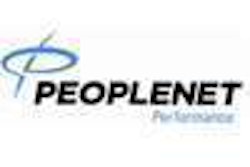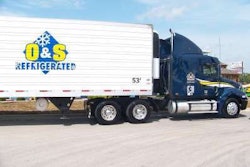The Oakland Board of Port Commissioners this week adopted the Port of Oakland’s Maritime Comprehensive Truck Management Plan (CTMP), which addresses air quality, safety and security, business and operations, and community issues related to drayage trucking at the Oakland seaport at an estimated cost of $15.2 million for fiscal years 2009-12.
“The Port of Oakland is balancing its economic responsibility as a global gateway with its social responsibility to reduce air pollution and improve the trucking system at the Oakland seaport,” says Victor Uno, port board president. The CTMP is a program developed within the port’s larger Maritime Air Quality Improvement Plan (MAQIP), the port’s master plan framework to reduce seaport diesel pollution by 85 percent by 2020.
“We can now begin implementing components of the program, including a truck registry for safety and security, as well as facilitating financing for cleaner trucks,” says Omar Benjamin, Port of Oakland executive director. “All of this is going to lead to a major improvement in the overall trucking industry at the Oakland seaport, while at the same time improving air quality for a healthier community.”
The port board also directed staff to prepare an ordinance to amend the port’s tariff for operating the marine terminals to include a truck ban. “The truck ban will demonstrate that the Port of Oakland is very serious about reducing diesel pollution,” Uno says. “We are taking an aggressive position to provide maximum assurance that only cleaner trucks will serve our seaport.”
The CTMP is organized in two categories: Core Components (6) and Future Component (1). Core Components are items that will be implemented in the next one to two years and are considered priorities for the port. The Future Component is a potential item (Truck Positioning Technology) that requires further study and/or necessitates major funding that is not available at this time. The $15.2 million spending will cover fiscal years 2009-12 and includes both implementation and annual operation and maintenance costs.
“Through the CTMP using a port registry, the port will identify drayage trucks serving our maritime area, which will add another significant layer of safety and security at our seaport,” says James Kwon, Port of Oakland maritime director. “The CTMP will also improve air quality and the flow of commerce through operational efficiencies and reducing traffic and congestion.”












